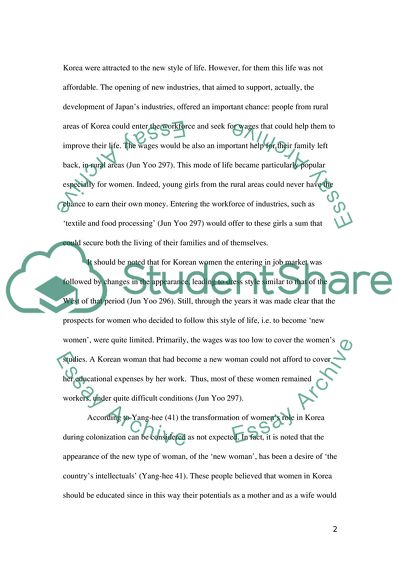Cite this document
(“Women in Colonial Korea: New Women and Comfort Women Essay”, n.d.)
Women in Colonial Korea: New Women and Comfort Women Essay. Retrieved from https://studentshare.org/history/1632340-women-in-colonial-korea-new-women-and-comfort-women
Women in Colonial Korea: New Women and Comfort Women Essay. Retrieved from https://studentshare.org/history/1632340-women-in-colonial-korea-new-women-and-comfort-women
(Women in Colonial Korea: New Women and Comfort Women Essay)
Women in Colonial Korea: New Women and Comfort Women Essay. https://studentshare.org/history/1632340-women-in-colonial-korea-new-women-and-comfort-women.
Women in Colonial Korea: New Women and Comfort Women Essay. https://studentshare.org/history/1632340-women-in-colonial-korea-new-women-and-comfort-women.
“Women in Colonial Korea: New Women and Comfort Women Essay”, n.d. https://studentshare.org/history/1632340-women-in-colonial-korea-new-women-and-comfort-women.


